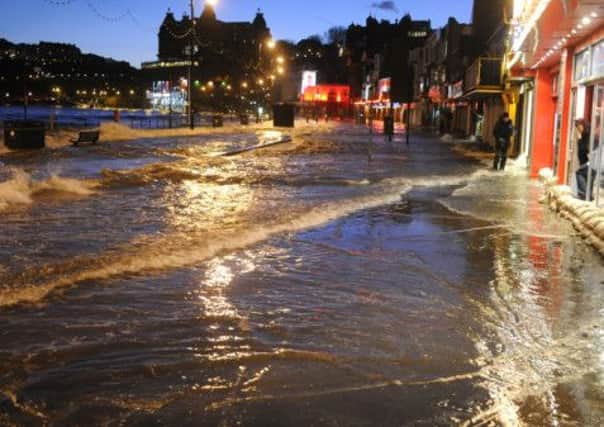Experts back Cameron on bad weather link to climate change


The Yorkshire Post revealed that David Cameron had made the comments this week as communities around the UK dealt with aftermath of the stormiest December in records dating back to 1969 and more storms and flooding in the New Year.
In response to a question by Liberal Democrat president Tim Farron in the Commons, Mr Cameron said: “I agree with you that we are seeing more abnormal weather events. Colleagues across the House can argue about whether that is linked to climate change or not. I very much suspect that it is.”
Advertisement
Hide AdAdvertisement
Hide AdDr Peter Stott, head of climate monitoring and attribution at the Met Office Hadley Centre, said he agreed with the Prime Minister that there had been more temperature and rainfall extremes, and that it was fair to suspect a link to climate change.
“We are seeing more extreme temperatures and more intense rainfall events around the world,” he said.
“The expectation in a warming world is for an increased frequency of heat waves and greater moisture in a warmer atmosphere is expected to lead to extreme precipitation events, more intense and more frequent.”
Levels of moisture over the oceans had increased four per cent since the 1970s. “When you get weather patterns conducive to heavy or prolonged rainfall you can expect the rainfall to be more intense,” he said.
Advertisement
Hide AdAdvertisement
Hide AdProfessor Myles Allen, head of the climate dynamics group at Oxford University, said Mr Cameron had “got the balance about right” with his comments that he very much suspected a link between an increase in abnormal weather and climate change.
“He did not say, and it would be wrong to say, every kind of damaging weather is more likely because of climate change.”
Some kinds of extreme weather are made more likely by rising temperatures, and others made less likely, he said.
“But it is possible to discern a link between these extreme weather events and human influence on the climate.”
Advertisement
Hide AdAdvertisement
Hide AdThere was no such thing as a “climate change storm”, with extreme weather events that just could not have occurred without global warming, he said.
But research on the devastating floods in October 2000 had shown they had been made more likely by rising global temperatures, while the chances of the bitterly cold weather the UK experienced in 2010/2011 had been reduced.
The role of climate change in the latest storms is not definitively known, but investment could allow experts to assess individual extreme weather events when they happened to see if the chances of them occurring had been increased by global warming.
Prof Allen estimated that providing the Met Office or European Centre for Medium Range Forecasts with around £10 million a year would allow experts to model the weather against conditions that would have occurred if humans had not interfered with the climate.
Advertisement
Hide AdAdvertisement
Hide AdWithin a couple of years, they could be assessing “in real time” whether weather extremes the country was experiencing had become more or less likely to occur as a result of climate change.
Assessment of weather extremes that had already happened “doesn’t save lives”, but it would help with decisions on investing in measures such as flood defences to make the UK more resilient to climate change in the future, he argued.
“The public is being asked to spend a substantial amount of money (on climate change), they deserve to know what climate change is doing to them. At the moment we’re not delivering nearly as an authoritative answer as we could.”
“We need to understand how the climate is changing in order to make rational decisions about where to invest in infrastructure,” Prof Allen said.
ends